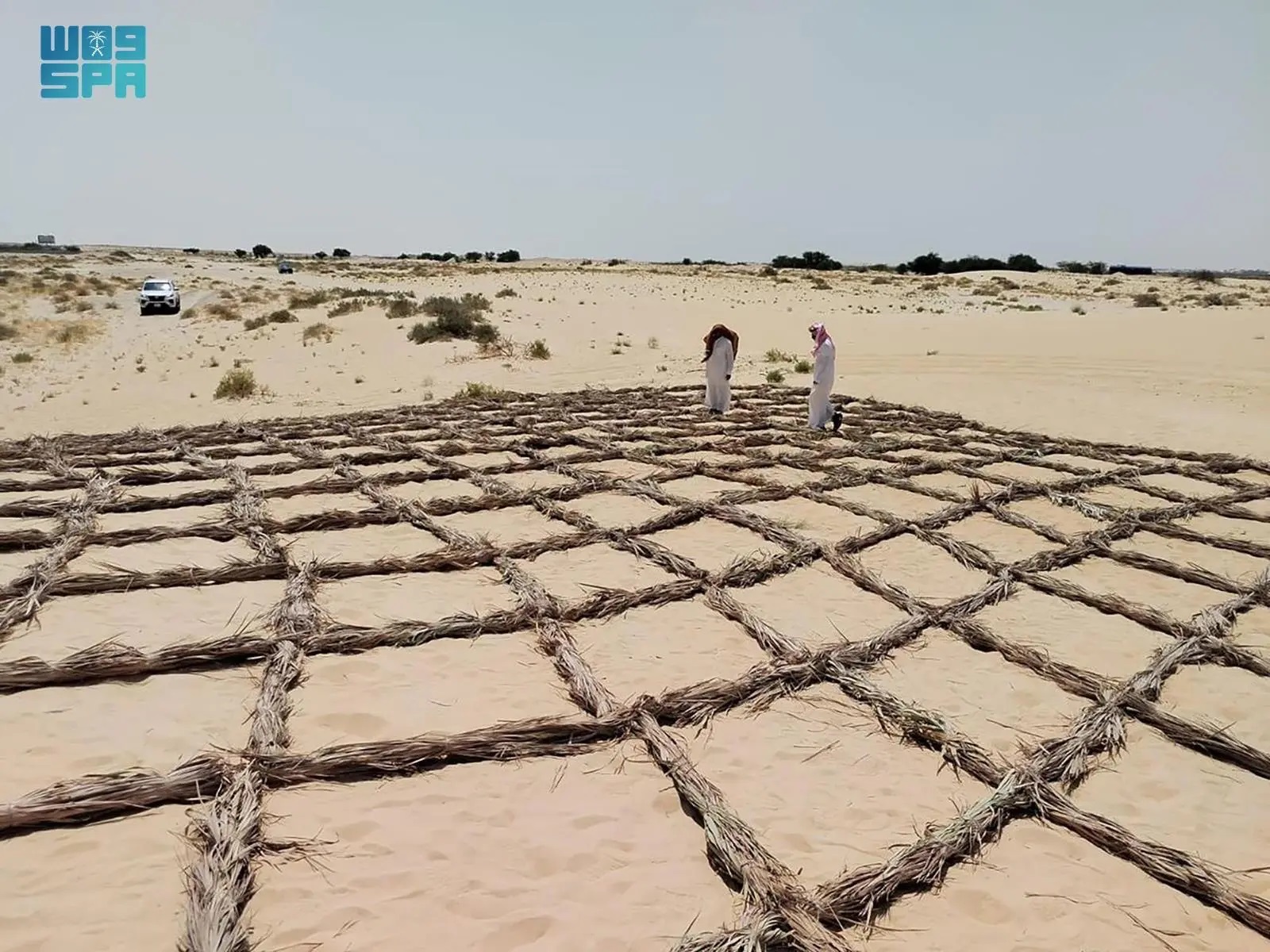
FAO Committed to Land Restoration on 'World Day to Combat Desertification and Drought'
The UN Food and Agriculture Organization (FAO) reaffirmed its firm commitment to supporting Saudi Arabia's transformational efforts to rehabilitate degraded lands, combat sand encroachment, and enhance climate resilience in conjunction with the World Day to Combat Desertification and Drought, observed annually on 17 June under the theme “Restore the Land, Unlock the Opportunities." The day serves as a global call for countries, communities, and organizations to unify efforts to restore degraded ecosystems and strengthen their ability to withstand environmental challenges.
The FAO has been a strategic partner of the Kingdom since the early 1950s, beginning with pioneering irrigation projects in Wadi Jazan. The cooperation expanded to include support for rural livelihoods, forest management, rangeland rehabilitation, and institutional capacity building. The FAO emphasized that the observance of this international day underscores the critical role of land restoration in advancing environmental sustainability, driving economic growth, and achieving social well-being.
The UN organization highlighted more than six decades of strong partnership with Saudi Arabia aimed at sustainable development. It praised the Kingdom's global leadership in combating land degradation, mitigating drought, reducing carbon emissions, and enhancing climate resilience through innovative policies and ambitious initiatives aligned with Vision 2030. The partnership has led to tangible achievements in sustainable land management, climate adaptation, and food security.
The FAO recognized the Kingdom's recent initiatives in land restoration and desertification control. In December 2024, Riyadh hosted the 16th session of the Conference of the Parties (COP16) to the UN Convention to Combat Desertification, with the participation of 200 countries and blocs. On the occasion, the Riyadh Global Drought Resilience Partnership was launched, successfully mobilizing more than SAR12 billion (approx. $3.2 billion) to support drought-prone countries through public and private investments. The initiative targets more than 80 vulnerable countries, aiming to enhance their capacity to combat land degradation and adapt to growing drought challenges.
The efforts are part of Vision 2030 and the launch of the Saudi Green Initiative, which aims to plant 10 billion trees, expand protected natural areas to 30% of the Kingdom’s territory, and rehabilitate 40 million hectares of degraded land. As of 2023, more than 41 million trees have been planted across the Kingdom and the region. Additionally, Saudi Arabia leads the Middle East Green Initiative, which aims to plant 40 billion additional trees in the region, making it one of the most ambitious afforestation campaigns globally.
The FAO affirmed its role as a trusted technical partner to the Kingdom, working through the Sustainable Rural Agricultural Development Program, in cooperation with the National Center for Vegetation Cover Development and Combating Desertification (NCVC) and the Ministry of Environment, Water and Agriculture (MEWA). The collaboration focuses on implementing effective sustainable land management frameworks, expanding natural resource restoration projects, and strengthening national capacity.
The FAO noted the pivotal role played by NCVC in developing and executing strategic plans to combat desertification, drought, and sand encroachment. Its plans include early-warning systems, reforestation programs, rangeland restoration, and community-based land rehabilitation. Such efforts have already begun to bear fruit in priority areas such as Al Jouf, Tabuk, and the Eastern Region.
In partnership with NCVC and the World Overview of Conservation Approaches and Technologies (WOCAT), the FAO organized an advanced training program for more than 40 national experts on sustainable land management techniques. The efforts, in collaboration with civil-society organizations, led to the establishment of native plant nurseries, the formation of green belts, the use of dry palm frond mechanical barriers to limit sand encroachment, and the launch of public awareness campaigns, empowering local communities to protect and rehabilitate their land.
The FAO praised the role of NCVC in advancing Saudi Arabia's international commitments to combat desertification and land degradation. The efforts contribute to the achievement of Sustainable Development Goals (SDGs) 13 and 15, and support the UN Strategic Plan for Forests, the Strategic Framework of the UN Convention to Combat Desertification, and the Bonn Challenge.
The FAO reported the implementation of four innovative field trials for sand stabilization in the Eastern Region, combining advanced mechanical designs with modern monitoring tools. The experiments have shown promising results in stabilizing sand dunes, increasing vegetation cover, and restoring ecological balance in fragile environments.
The FAO noted another joint initiative with the Saudi Irrigation Organization (SIO) to implement a land restoration project along the northern boundary of Al Asfar Lake, covering approximately 47.3 hectares. The project uses four techniques: tracking dune movement, measuring sand flow, monitoring vegetation growth, and analyzing the density and porosity of windbreaks, with the aim of evaluating and improving sand encroachment control efforts.
The FAO confirmed that the ongoing efforts reflect its deep commitment to promoting scientific solutions to combat desertification, working in close partnership with MEWA, NCVC, and SIO. The organization emphasized the importance of mechanical barriers and innovative strategies to restore ecosystems and enhance resilience in arid environments.
The FAO concluded by affirming the Kingdom’s inspiring experience as a model for transformative environmental change. Through innovative financing and scalable initiatives to restore drylands, Saudi Arabia provides valuable lessons for the international community. With innovation, collaboration, and commitment to scientific solutions, land can be rehabilitated, ecosystems revived, and a sustainable future unlocked for the Kingdom and the broader region through joint efforts to protect and restore land for current and future generations.








